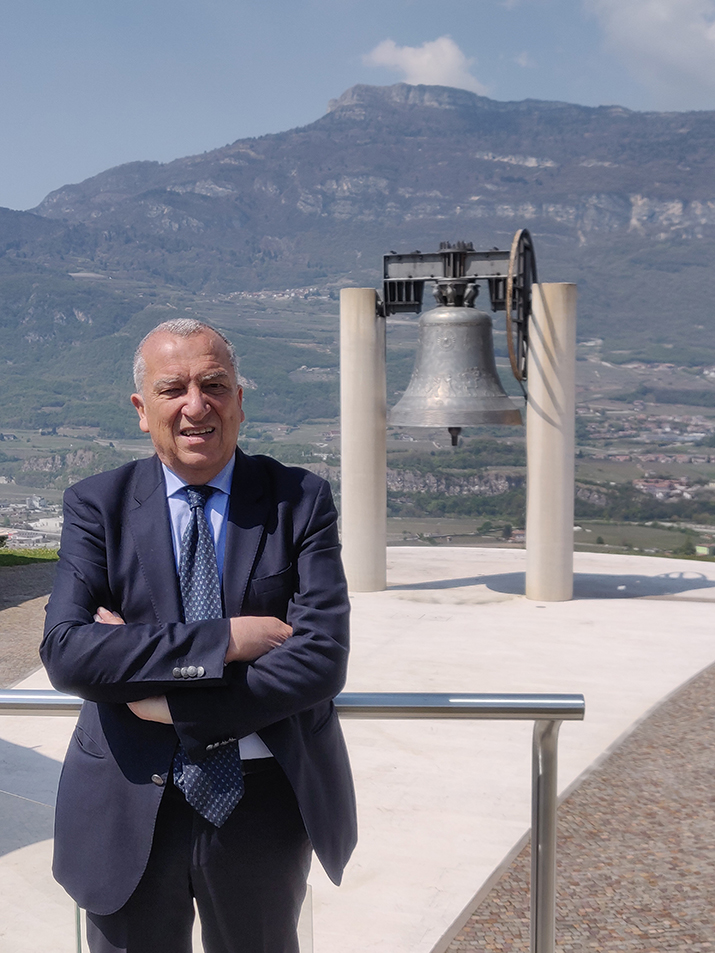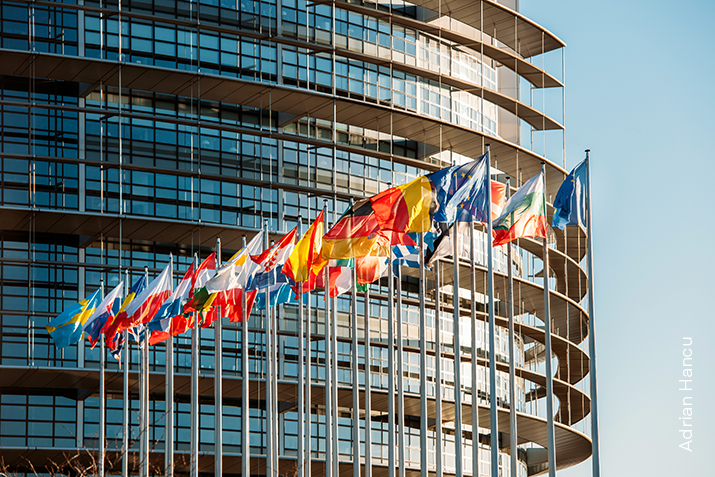THE COE REPORT
The Council of Europe (CoE), the pan-European organisation whose raison d'être is to protect/uphold human rights, democracy and the rule of law, recently published its new Report, with the title "Moving forward", which may also be interpreted as an implicit expectation of less problematic times than the current ones.
It is a substantial document of just under 70 pages, outlining the strategy of the multilateral body for a four-year period. It can be found on the CoE website (although not in Italian at the moment) and, as usual, is produced under the direct responsibility of the Secretary General, Croatian Marija Pejčinović Burić, who has been in office since 2019.
On the contents level, it identifies a series of macro-areas (twelve, to be precise) on which to focus the work of the Strasburg organisation for the future. In many contexts (the sole exceptions being those regarding problems that have appeared recently, such as artificial intelligence or cybercrime) we may surely rely on the very solid experience gained since 1950 up to the present day, condensed in the dozens of Conventions between countries (mainly members, but not excluding the involvement also of "third party" nations) that have come into existence since then.
While we are not able to list them all, these sectors include freedom of expression, including in print; non-discrimination as well as, on the other hand, the targeted protection of vulnerable groups; guaranteeing independent, efficient legal systems, capable of combating phenomena such as corruption and money laundering; safeguarding the environment by joining in with initiatives for fighting climate change promoted on a wider scale (by the United Nations, first and foremost); reinforcing so-called "civil societies" through, among other things, creating human rights defender institutions in all member states.
A clear warning to avoid any “non-standard” behaviours in the future
Incidentally, this last recommendation touches a raw nerve for Italy, one of the very few European countries that has not yet established a national authority with wide-ranging responsibilities on this sensitive matter. Until now, it has preferred to divide up duties and responsibilities between the various "sector-based" figures (guarantors for the rights of prisoners, of children, of privacy, etc.), which are certainly worthy of recognition for the activities they perform, but are without a necessary overall view of things.
The criminal act of aggression carried out just a few months before the publication of the Report by what was, at that time, a member of the Strasbourg Court against a neighbouring country and also a member of the organisation may, at first sight, lead to reductive considerations about the value of the Report. In other words, there may be a temptation on the part of some people to regard it as a collection of principles that are certainly noble and virtuous, but not able to sustain the impact with the much harder and more concrete needs of realpolitik. There is very little doubt about the fact that, after 24th February, the Russian Federation placed itself in open and radical conflict with almost all the values stated in the Secretary General's Report. An obvious example, on the subject of freedom of expression, is the fact that any criticism of the conduct of the military operations, aimed at the Kremlin by a Russian citizen, is now punishable by several years of imprisonment. In addition, there is practically no trace of the independence of the judiciary in the Federation today, in a system that was already strongly dependent on political realities. And the list could go on and on. In spite of this, some major international forums (including the G-20) continue to keep the doors open to Putin, Lavrov and other Russian leaders.
Applying an open different, and more positive, interpretation, the value of the document lies in highlighting how commitment to the 12 macro-areas represents a sort of "essential passport" for belonging to the Strasbourg organisation. It is, of course, fully acknowledged that certain margins of flexibility could be applied to them. For example, both the previous history and current political situation of Cyprus differ widely from those of Armenia (the two states are not quoted by chance here, but because they have subscribed to our Foundation's "Memorandum of Peace" in 2022). It would therefore not be right that the application of CoE principles in Nicosia should be absolutely identical to their application in Yerevan. At the same time, these principles would not be so "diluted" as to be without identity or meaning, to the point where the very credibility of the Council that approved them is put into question.
Consequently, in the Report's evaluations (which I personally would share) we are not faced with a failure of multilateralism - in this year, 2022, that is so tormented and has its certainties eroding - but with an unjustified act of violence by a member State, already the subject of sanctions by Strasbourg in the past. In 2014, following the annexation of the Crimea, the exclusion concerned only parliamentary delegates and did not result, as it has in the current year, in the suspension/expulsion of the Russian Federation from the European organisation, when it happened, as we will remember, on a procedural level during Italy's well-managed six-month presidency.
“Our success relies on our member states’ determination to do the right thing”
From this point of view, the respect for core values has clearly prevailed over the principle of inclusivity that the CoE has been very careful to observe ever since its origin, in particular with regard to two of its members (the Russian Federation and Turkey), considered as real "added values" for Europe up to the very recent past. Now that the European Union and NATO have, almost in unison, set in motion internal procedures for enlarging their respective memberships, a signal arrives from Strasbourg that goes against the trend, on the basis of a shared need for "consistency", including a clear warning to avoid any "non-standard" behaviours in the future.
I would like to conclude these reflections of mine by reporting the final words of the Secretary General's Report. "The lesson to be drawn, yet again, is that our success as an Organisation – and as a continent – relies on our member states’ determination to do the right thing: to invest in human rights, democracy and the rule of law as the basis of a just future".
These words may seem predictable but, if we think about it, they comprise the basis for allowing us to carry on our lives in free, democratic societies in the future, as has fortunately been the case over the last decades. The Council of Europe has made a decisive contribution to implementing this model of society for the past 73 years, with its proposals and creations. These could all gain new energy from a forthcoming summit of heads of state and governments (this would be the fourth since its foundation) and a large part of the Strasbourg membership would seem to look favourably on this prospect.
Reggente Marco Marsilli, Foundation President








